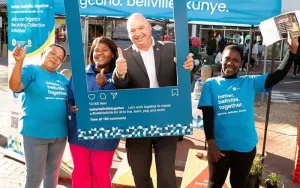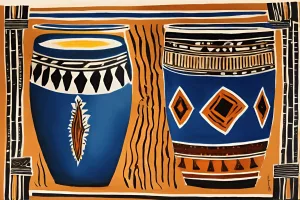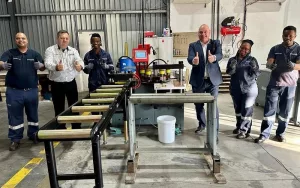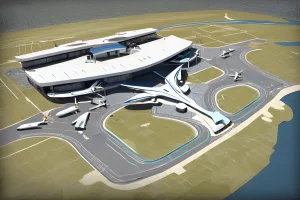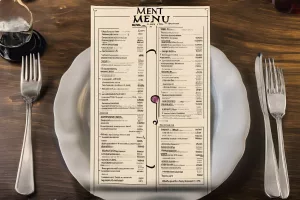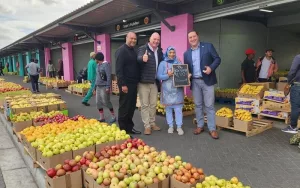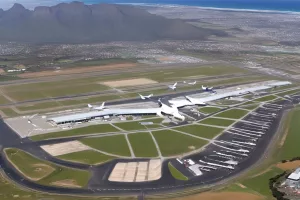The Eskom case study in South Africa examines the country’s affirmative action law and its wider implications on race and representation in the business sector. The case highlights the inadvertent contradiction within affirmative action strategies, which aim to nurture diversity and redress representation imbalances but must simultaneously refrain from establishing absolute boundaries for any racial demographic. The court case resulted in compensation for the plaintiff, but also serves as a reflection for businesses and governments globally on the fine equilibrium between diversity and equal opportunity.
The better. bellville. together. project is transforming the face of Bellville, a struggling urban neighborhood in Cape Town. Led by the city, the initiative promotes sustainable practices, business investment, and community efforts, generating employment, saving money, and improving the region’s wellbeing. It embodies the principles of a circular economy, promoting waste reuse and recycling, and serves as a blueprint for other communities grappling with similar issues. It has transformed Bellville into a hotbed of prosperity and sustainability, creating jobs, fostering greener spaces, and drawing potential investments.
Discover the hidden gem of South Africa’s Cape Winelands at The Soul Barrel Brewing Co. Their innovative brewing techniques utilize local ingredients to create an authentic South African flavor, earning them the title of Best Beer in Africa at the African Beer Cup. This prestigious competition celebrates the high standards and emerging trends in the beer industry, showcasing the innovation, creativity, and craftsmanship of breweries like The Soul Barrel and Darling Brew. These breweries remind us that the best flavors come from a combination of tradition and innovation, old and new, local and global.
Soul Barrel Brewing Co., a small artisanal brewery located in South Africa’s Winelands, has become Africa’s foremost beer manufacturer by committing to using only local produce and mastering their craft. Their Live Culture Grand Cru won the Best Beer in Africa accolade at the African Beer Cup, showcasing their complex blend of indigenous wild yeast, locally sourced barley, fynbos, and hops. The brewery’s mission is to foster a topnotch South African beer culture and serve as a reminder of the power of local enterprises and commitment to craftsmanship, quality, and local farming.
Modulêr Electrical Assemblies, located in the Atlantis Special Economic Zone, produces electrical panel components that play a crucial role in the shift towards renewable energy. Its growth is a testament to the potential of renewable energy as a driver of job creation and economic growth. The ASEZ provides an ideal environment for business growth in the renewable energy and agribusiness value chains, with various development programs in place to promote economic development. The future of Atlantis is set to become a shining example of green innovation and sustainable industrial growth.
The Majestic Transformation of Cape Town’s Skyline: The Cape Winelands Airport Expansion
Cape Town’s Cape Winelands Airport is undergoing a massive $460 million expansion, with plans to extend a runway to 3,500m and become the most ecofriendly airport in the world. The project is expected to create 60,000 new jobs and serve as a backup for Cape Town International during emergencies, reducing carbon emissions and conserving fuel. The expansion is set to transform Cape Town’s skyline, bringing economic growth and environmental responsibility to the forefront.
The City has introduced a debt relief initiative for eligible citizens to absolve overdue debts and cultivate a culture of consistent payment. The initiative has two purposes: providing relief to eligible citizens and encouraging regular payments. Eligibility requirements and application guidelines are clear, and the City’s social support proves the effectiveness of such programs. It serves as a financial lifeline for those trapped in old debts, bearing witness to the City’s dedication to its residents, and fortifying the financial backbone of the city and its residents in the process.
South African restaurants are facing a credibility crisis due to a flood of fraudulent Google reviews, including positive reviews that include incorrect information. Esteemed culinary institutions, such as PIER, Ōku, Belly of the Beast, Reverie Social Table, La Colombe, and Homespun, are struggling with the impact on their reputation. The rise of AIgenerated fake reviews poses a considerable challenge for businesses, and Hellopeter is one platform that has adopted strict measures to combat fraudulent activities. Despite these challenges, the resilience and adaptability of the restaurant industry give hope for the future.
Cape Town has introduced a remote work visa, allowing people to work from South Africa for extended periods while earning income from a foreign source. This visa boosts the city’s economy through increased tourism and revenue for local businesses and services. Cape Town is preparing for an influx of digital nomads by arranging industry sessions and forging alliances with industry associations and promotional agencies to showcase the city as a top destination. The visa category represents a transformative shift in societal norms and perceptions about work, and Cape Town is ready to welcome dynamic digital nomads.
The CTICC in Cape Town is a worldclass convention center that recently won two gold awards and a silver accolade in the Eventex Global Awards. This prestigious recognition validates the center’s exceptional service quality, proficiency, and popularity. The CTICC’s versatility, outstanding infrastructure, and commitment to staging worldclass events make it the ultimate choice for global conventions and enhance Cape Town’s status as a leading tourist destination. Its continuous success story contributes to bolstering the local economy and amplifying Cape Town’s charm.
Cape Town’s proposed budget for 2024/25 focuses on promoting social inclusivity and economic advancement. The city’s social package, tailored to the needs of the underprivileged, retirees, and general citizenry, is unmatched among South Africa’s metropolitan regions. The budget sets aside a significant chunk of its capital budget for infrastructure development, concentrating on the poorest and fastestgrowing areas, and is expected to yield approximately 130,000 constructionrelated jobs over the next three years. Cape Town’s commitment to cultivating an environment of inclusivity and economic expansion serves as a model of progress.
Cape Town is investing in its informal economy by improving trading spaces with enhancements such as asphalt coating, pavers, and gazebo hooks. Major infrastructural projects are underway, including a container market and Traders Support Services Centre. The city proposes dedicated business training workshops to strengthen local entrepreneurs’ commercial prowess. Cape Town’s approach showcases how cities can develop inclusive, resilient, and dynamic economies.
The Parliamentary Constituency Office (PCO) in Botshabelo has been relocated to a more accessible location in the Reahola Shopping Centre, serving as a community cornerstone. The PCO plays a critical role in promoting interaction with citizens, facilitating ongoing dialogue on urgent issues, and strengthening Parliament’s supervisory role over the Executive branch. The office aims to enhance collaboration with local government representatives and function as a catalyst for Parliament’s vision of becoming a proactive and responsive institution that enriches South Africans’ livelihoods and nurtures lasting equality.
South Africa’s trucking industry faces a looming shutdown as the All Truck Drivers Forum and Allied SA (ATDFASA) announced a shutdown planned for May 20, 2024. This is due to the ongoing conflict over hiring foreign truck drivers, which has resulted in national shutdowns, protests, casualties, damage to trucks, and loss of goods. The impact of the protests has extended beyond the industry, severely affecting the South African economy and public safety. The disruptions have also caused shortages of basic necessities, delays in deliveries, and increased absences among staff members.
South Africa’s NHI Bill has been approved by the president and aims to offer universal quality healthcare to all citizens by consolidating resources from taxpayers. The bill promises to enroll all South Africans, including pensioners, in a unified funding system by 2024, ensuring extensive healthcare coverage. However, concerns have been raised about the potential pressure on government finances and the sustainability of SASSA grants. The execution of the bill is fraught with uncertainties, but if successful, it could bring a favorable transformation to the SASSA grants and alleviate financial strain on the country’s most vulnerable citizens.
The Cape Town Winelands Airport is undergoing an extensive expansion plan that aims to create a new era of economic growth and sustainability. The project includes the development of a Code F runway and additional facilities such as a plaza, hotel, conference center, and winetasting facilities. The expansion prioritizes environmental considerations, aiming to be completely offgrid for water and electricity by employing solar and biogas power derived from chicken manure. The project is expected to create 60,000 jobs during construction and capture onefourth of the local market share by 2050 while balancing growth and sustainability.


